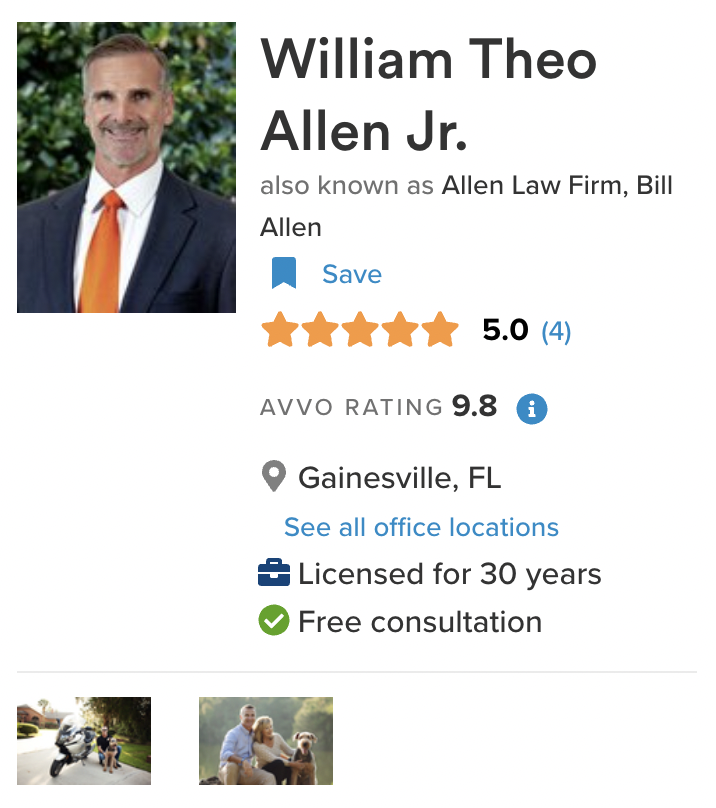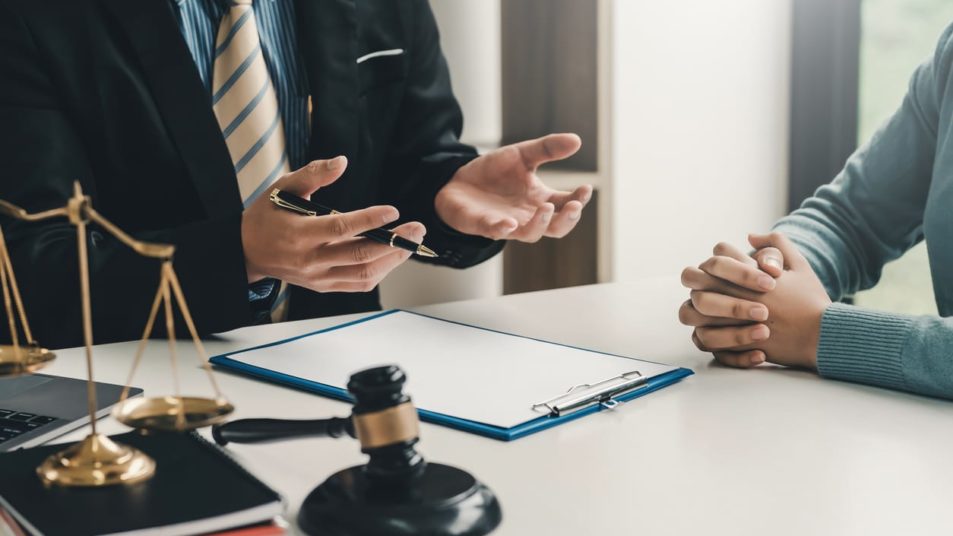How To Find the Best Personal Injury Attorney in Florida
If you’ve been in an accident in Florida, you may have realized that the bills pile up quickly. You may have medical expenses related to your injuries, but those same injuries might keep you from working and earning income. You might not know where to turn. A personal injury lawyer is a good start.
If someone else’s negligence is responsible for your injuries, they may be liable for your damages. A personal injury attorney can help you pursue those damages through a personal injury claim. They can help you obtain compensation for your medical bills, lost income, and pain and suffering. They can help you move forward after an accident and regain a sense of financial security.
To be sure, there are a lot of personal injury lawyers in the Sunshine State. We put together this article to help you find the best attorney for your situation.
Identifying Personal Injury Lawyers Near You
When you are looking for a personal injury lawyer, you should begin your search by gathering a handful of names. There are many sources that can help you.
Referrals from Friends and Family
Your family and friends may be one of your best sources for identifying a strong personal injury lawyer. If they had an injury case in the past, they can direct you to the attorney who got them a successful result. Alternatively, they may be able to help you steer clear of an attorney with whom they had a negative experience. Even if your family or friends have not had an injury case, they may still know of attorneys who practice personal injury law.
Lawyers (in other practice areas), judges, and paralegals can also be great sources of information for determining which injury lawyers have a strong reputation in your community.
Legal Directories
Legal directories are another excellent place to locate skilled personal injury lawyers in your area.
The most helpful legal directories are:
- Avvo – rates attorneys on a scale of 1 to 10 based on profile information and public data available on the attorney.
- Martindale-Hubbell – rates attorneys based on peer reviews of the attorney
- FindLaw – rates lawyers according to the average of all ratings submitted for the lawyer or organization.
- Justia – rates lawyers based on peer-to-peer reviews
You should look for an attorney who has high ratings on these directories. Ideally, you should look for an attorney who has favorable ratings from colleagues and former clients. For example, Bill Allen, an experienced Gainesville personal injury lawyer, enjoys a “9.8 – Superb” rating on Avvo and an “AV-Preeminent” rating on Martindale Hubbell.

As a Florida personal injury lawyer, Bill is proud to earn high marks from legal rating services because they reflect his experience, skill, and ethics in Florida personal injury law.
Lawyer Referral Services
The Florida State Bar has a lawyer referral service for the public. When you use this service, you will briefly describe your legal situation and provide the service with a way to contact you.
The service will match you with a lawyer based on your needs and geographic location. You can then connect with that lawyer to discuss your injury claim. Keep in mind the service may not necessarily screen lawyers for quality. It’s focused more on location and practice area.
Online Searches
Search engines are always a nice place to find information about lawyers in your area. However, the law firms that appear first on Google may not be the best for your legal situation; they may just have the biggest marketing budgets.
Therefore, you shouldn’t only rely on Google rankings to make your decision. Instead, examine the attorney’s reviews and ratings on legal directories as mentioned above.
Meet With Prospective Attorneys – Most Florida Personal Injury Lawyers Offer a Free Consultation
After you have identified a few potential lawyers in Florida, you should schedule free consultations with each attorney. Speaking to multiple lawyers will help you get a feel of what you want and don’t want in a lawyer. It will help you find an attorney that is compatible with your legal needs.
You should use the free consultation to get as much information as possible about your injury claim. You should also ask specific questions about the lawyer’s services.
Consider asking:
- How much are your attorney fees?
- What are my claim’s chances of success?
- What are the weaknesses of my case?
- Who will manage my case?
- How much is my case worth?
- How long do I have to file my claim?
- How long will my case take to settle?
- Who will provide me with updates?
By asking these questions, you will be able to set clear expectations about your case and attorney. These questions will also facilitate a healthy relationship with your attorney and minimize misunderstandings and miscommunications.
Selecting the Right Florida Personal Injury Attorney to Represent You
To have the best odds of a successful personal injury claim, you should make sure your attorney has certain skills. These skills can be the difference between receiving maximum compensation for your injuries and receiving nothing at all.
Organization Skills
There are a lot of moving parts in a personal injury case. There are filings, investigations, deadlines, etc. Your lawyer needs to be able to manage each stage and filing of a case effectively. Missing a deadline or hearing can have disastrous consequences for your claim.
You also need to make sure your lawyer has the skills to organize and track all documents and evidence in your case. This evidence will be critical for helping you prove liability in your case and achieving a favorable result.
Knowledge of Florida Personal Injury Law
Your lawyer needs to understand and apply Florida injury and insurance law to make the most of your case. These laws, including comparative fault rules and statutes of limitation, can be highly technical. You may not want a lawyer who is a generalist or who typically practices criminal law.
Experience Handling Your Type of Accident Case
You don’t only want a lawyer who has experience in personal injury law. You also want a lawyer who has experience handling your type of personal injury case.
Not all personal injury cases are created equal. Some arise from motor vehicle accidents. Some from medical malpractice. Some from other incidents.
You need a lawyer who understands the nuances of your injury case and knows what proof they need to offer to win your claim.
Excellent Communication and Negotiation Skills
Most personal injury claims settle. Insurance companies and other defendants prefer not to risk trial if they can settle for a reasonable sum. Therefore, your lawyer needs high-level negotiating skills. They need to be able to leverage their skills and the evidence in your case to make the at-fault party pay fair compensation.
Your lawyer also needs to be able to explain technical legal concepts simply. If they can do this for you in a free consultation, it’s likely that they can do it in front of a judge and jury, also.
Hire a Top Florida Personal Injury Lawyer for Your Case
Hopefully, this guide has equipped you with strategies for finding the best Florida personal injury lawyer for your case. If you choose the right attorney, your case should proceed smoothly through the different stages. It may take a few tries to find the right attorney, but the effort will have been well worth it if the attorney helps maximize your compensation after your accident.


